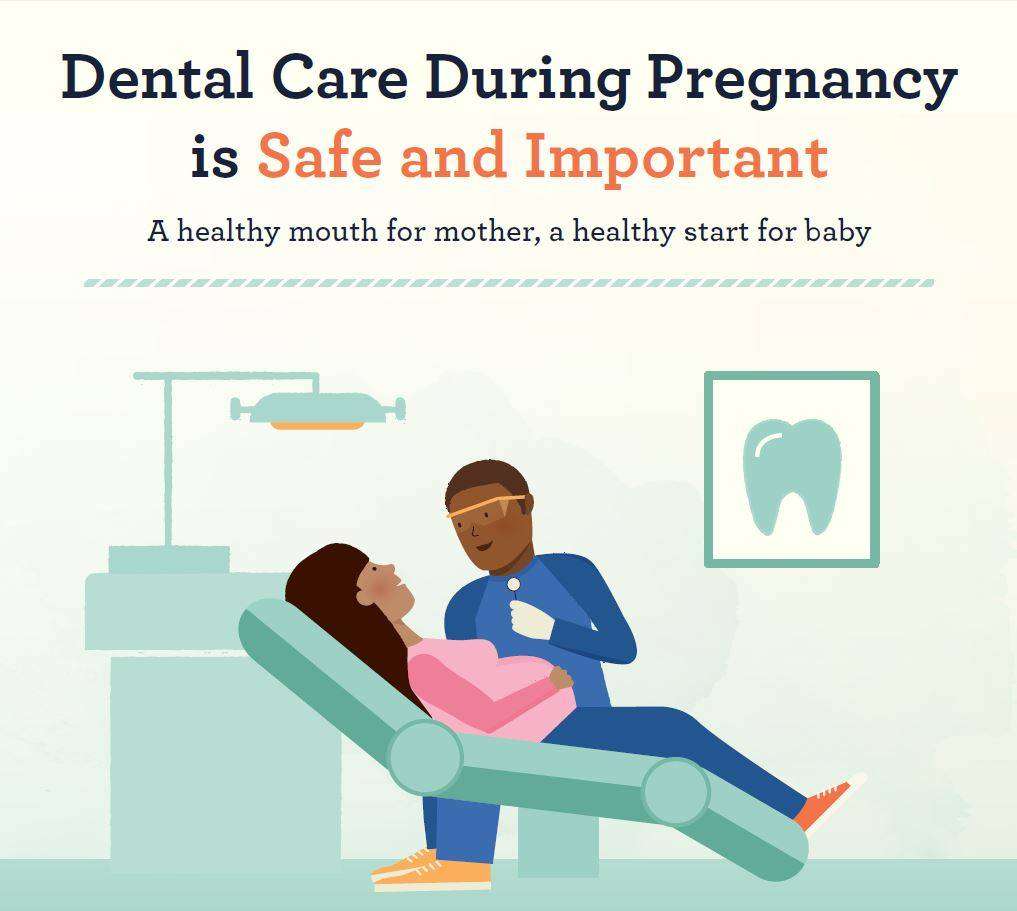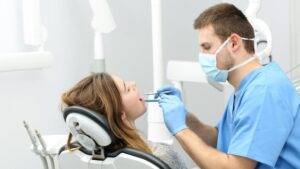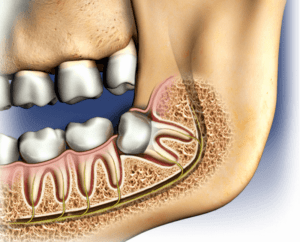Dental care is an important part of your overall health.
Pregnancy increases the risk of certain dental health problems that may lead to pregnancy complications like premature birth.
Dental Care While Pregnant
- Tell your dentist (and doctor) if you are pregnant.
- Routine dental care can be done any time during pregnancy. Any urgent procedure can be done, as well.
- Before you have your dental appointment, check with your obstetrician to see if they have any special precautions/instructions for you.
- Tell your dentist the names and dosages of all drugs you are taking, including medicaments and prenatal vitamins prescribed by your doctor, as well as any specific medical advice your doctor has given you. Your dentist may need to alter your dental treatment plan based on this information.
- Pay particular attention to any changes in your gums during pregnancy. If tenderness, bleeding, or gum swelling occurs at any time during your pregnancy, talk with your dentist as soon as possible.
- Follow good dental care practices to prevent and reduce oral health problems, which include brushing at least twice a day, flossing once a day, and using an antimicrobial mouth rinse.
How does pregnancy affect your dental health?
Changes in your body during pregnancy can affect your teeth and gums. For example:
- You have increased levels of certain hormones, like progesterone and estrogen, in your body during pregnancy. These can increase your risk for certain oral health problems.
- You may brush and floss your teeth less than you did before you got pregnant. This may be because your gums are tender or you’re more tired than usual. For some women, brushing and flossing may cause nausea (feeling sick to your stomach).
- Cavities (also called tooth decay or caries)- pregnancy makes you more likely to have cavities
Pregnancy Tumors in Mouth
- Sometimes a large lump with deep red pinpoint markings on it forms on inflamed gum tissue, usually near the upper gum line. The red lump glistens, may bleed and crust over, and can make eating and speaking difficult and cause discomfort. These growths are called pregnancy tumors and can occur at any time during the course of pregnancy, although they usually occur during the second trimester.
Gingivitis-
- Gingivitis is inflammation (redness and swelling) of the gums. If untreated, it can lead to more serious gum disease.
Tooth erosion-
- If you have vomiting from morning sickness, your teeth may be exposed to too much stomach acid. This acid can harm the enamel (the hard surface) of your teeth.
Steps to prevent dental problems in pregnancy-
- Follow good oral hygienepractices to prevent and reduce oral health problems, which include brushing at least twice a day, flossing once a day, and using an antimicrobial mouth rinse. If you are due for a professional cleaning, don’t skip it simply because you are pregnant.
- Brush thoroughly with a flouride toothpaste twice a day.
- Floss between your teeth daily
- Eat a balanced diet If you snack, do so in moderation
- Visit your dentist regularly for a professional cleaning and check-up
- If you need help controlling plaque, your dentist may recommend rinsing at night with an antimicrobial mouth rinse.






 Fonts
Fonts